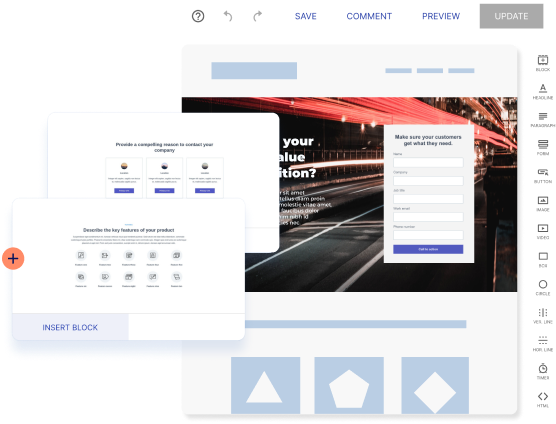The impact of AI on organic search is no longer a fantasy. AI marketing isn’t limited to helping marketers do quick research, write content faster, segment their ads, or write social media captions—its influence has now reached organic search.
AI technologies now have the potential to deliver more engaging, contextualized and immersive search experiences. Advertising giants Google and Microsoft with the creation of Bard and “the new Bing”, respectively are speeding up this process by continuing to invest in new search tools powered by AI.
Microsoft made an investment commitment of $10 billion to OpenAI, continuing their partnership on GPT—the large language model (LLM) which runs ChatGPT and the AI features of Bing. And Google didn’t stay behind, they invested more than $400 million in Anthropic (the ChatGPT rival), and according to news predictions the platform will invest about $300 billion in AI by 2028—including Bard.
The impact of AI driven search on organic traffic
When Google’s Knowledge Graph came out back in 2012, there was great uproar and panic over how it is going to make it hard for marketers to get traffic through SEO. And while Google’s Knowledge Graph and Alexa (2016) did decrease clicks to website: Roughly 25.6% of desktop searches and 17.3% of mobile searches got no clicks.


And while this may seem alarming, zero-click searches have always existed and they’ll always continue to exist.
But here’s the fact: Google dominates the search engine market. In fact, as of August 2023, Google held 91.9% of the market share (OBERL,August 2023).

And although Google takes a lion share of the search market, Bing is trying to make its way into search big leagues with a robust implementation of AI in search. Microsoft claims its goal is actually to drive more traffic to publishers and assist in increasing revenue.
First, we want to drive more traffic to publishers in this new world of search. It is a top goal for us, and we measure success in part by how much traffic we are sending from the new Bing/Edge.
Second, we want to increase revenue to publishers. We seek to do this by both driving more traffic to them through new features like chat and answers and by also pioneering the future of advertising in these new mediums…
Lastly, we want to go about this in collaborative fashion working with the industry to continue to foster a healthy ecosystem.

So, let’s get one thing straight: organic search isn’t going anywhere, but the current strategies to get yourself noticed in organic search results is slowly going to disappear. Unbranded search (optimizing for keywords for generic terms) is going to suffer the most. Because why would users need a page filled with links when they can simply get their query answered by ChatGPT, Bing, or Bard?
So, what are marketers supposed to do when unbranded search is dead? Featured below are some of the things you can do to stay relevant in the world of AI organic search and continue to drive organic web traffic.
And yes, as expected it comes down to relevant content and impactful storytelling.
Create good quality, engaging content
It’s important more than ever to create original and true to your brand content that not every Tom, Dick, and Harry can duplicate. This way you’ll have no problem being at the top of the search results.
Make sure your content is well-researched, authoritative, and can successfully engage humans, even if you use AI content generator tools to write it.
According to Instapage’s State of AI Marketing Report, 61.8% of marketing professionals use AI tools to write social media posts, while 49.3% use it for content ideation, closely followed by tasks such as sales flow triggers and content generation.

Cultivate a community your brand
Connect with your audience and build a community for your brand, this will help you make lasting connections. Start off with social media communities, respond to queries, strike up conversations, make your community the place your audience feels most comfortable in.
Optimize your content the right way
Make sure your content is relevant to user intent (answer FAQs and pain points) and is well-organized with clear headings and a logical structure.
Another thing that you need to do is: focus on entity-based optimization and figure out ways to integrate it into your content naturally.
Don’t know what an entity is? Here you go: Google defines an entity as “a thing or concept that is singular, unique, well-defined and distinguishable.” An entity can be colors, dates, and ideas—not just physical objects. Use schema markups to provide search engines with structured data about entities and optimize entity-related metadata to get more organic visibility.
Embrace yourself for the Impact of AI on organic search
The strong impact of AI on organic search comes with a set of challenges and opportunities for marketers. If you want to stay relevant in the age of AI organic search you need to strike the perfect balance between human storytelling capabilities and AI technologies.
This is what Instapage helps you do. With Instapage’s AI Content Generator, you get to experience the future and benefits of landing page personalization. The platform makes it easier than ever to build, test, and optimize your pages with the power of artificial intelligence.
Sign up for an Instapage 14-day trial and start leveraging AI today.

Try the world's most advanced landing page platform with a risk-free trial.
